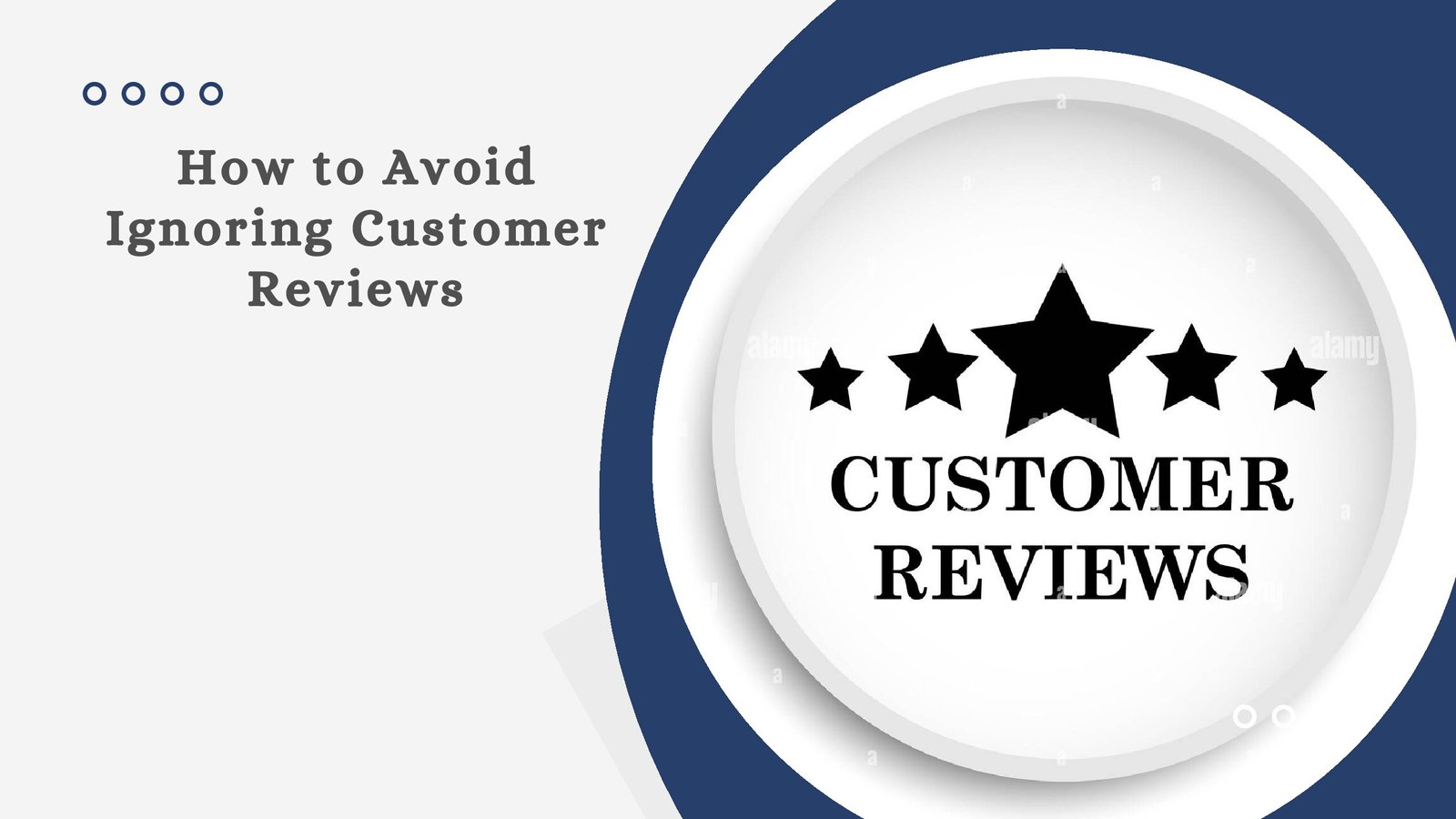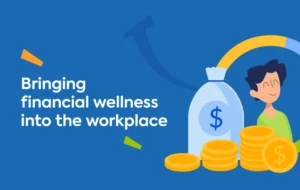
TOP FIVE (5) INSURANCE MISTAKES TO AVOID

Avoiding common insurance mistakes is crucial to ensuring that you have adequate coverage and protecting your financial well-being. Here are the top five insurance mistakes to avoid:
-
Underestimating Coverage Needs:
Underestimating the necessary amount of coverage is a common error. This is applicable to many other kinds of insurance, including life, vehicle, and homeowners insurance. In order to sufficiently safeguard yourself and your loved ones, it’s critical to evaluate the value of your assets and take potential hazards into account. If you underestimate your coverage, you could be exposed financially in the event of a claim.
- Mistake: Deciding to forego higher coverage limits in order to save money on premiums and undervaluing assets like a business, home, or automobile.
- Avoidance Tips: Conduct regular assessments of your assets and update coverage to reflect their current value.
- Consider probable risks and liabilities to determine suitable coverage limits.
2. Not Reviewing Policies Frequently:
Another error to avoid is not reviewing insurance policies frequently. As demands and circumstances change throughout life, it’s critical to make sure your coverage adapts as well. Every year or anytime a big life event occurs, including getting married, getting divorced, having kids, or making big financial changes, you should review your policies. Make sure to adjust policies as necessary to prevent coverage gaps.
- Mistake: Not routinely reviewing insurance plans, which can result in gaps in coverage and out-of-date coverage.
- Avoidance Advice: Establish a timetable for yearly or major life transition policy reviews.
- To address changes in assets, obligations, or coverage requirements, speak with your insurance agent.
3. Selecting the Cheapest Choice Without Giving It Enough Thought:
Choosing the least expensive insurance option without thoroughly examining the terms of the policy and the coverage might be a costly mistake. Cost is a consideration, but you also need to evaluate the coverage, deductibles, limits, and exclusions. Saving money by selecting insufficient coverage could lead to unforeseen out-of-pocket costs or claims being denied.
- Mistake: Opting for the cheapest insurance without thoroughly reviewing coverage details, leading to inadequate protection.
- Avoidance Advice: Evaluate coverage and price when comparing quotes from reliable insurance providers.
- Affordability should be balanced with the degree of security required for your particular circumstances.
4. Not Researching and Comparing Several Providers:
One error to avoid is not researching and contrasting a number of insurance companies. Options for coverage and insurance premiums can fluctuate greatly throughout providers. Spend some time comparing the terms and advantages provided by various insurers, learning about their track records, and obtaining estimates from them. This will make it more likely that you will receive the greatest coverage for your needs at the best price.
- Error: Neglecting policy exclusions and deductibles, which may cause unforeseen out-of-pocket costs when filing a claim.
- Tips for Avoiding Voidance: Recognize the effect of your policy’s deductible on your premium.
Examine the exclusions from the policy and think about adding riders or endorsements to handle particular risks.
5. Misunderstanding Policy Exclusions and Limitations:
Another frequent error is to not comprehend the exclusions and limitations of an insurance policy. To understand what is covered and what is not, it is crucial to thoroughly study and review the policy documents. Keep an eye out for particular terms, deductibles, filing processes, and any restrictions. You can prevent surprises when submitting a claim if you are aware of the policy’s provisions.
- Error: Failing to combine several insurance plans with one provider, thereby losing out on possible multi-policy savings.
- Avoidance Advice: Find out whether there are any savings available for combining your auto, home, and other insurance plans with one provider.
Compare the benefits of coverage and overall cost when buying bundled policies against individual policies.
6. You can make sure you have the appropriate protection to meet your demands and protect your financial well-being by steering clear of these frequent insurance blunders and taking an active approach to monitoring your coverage. It is advised that you speak with insurance experts or agents who can offer advice and assist you in locating suitable coverage options.
Common additional mistakes people make when choosing Insurance

1.Overlooking Deductibles:
Another typical insurance error to avoid is failing to pay attention to deductibles. The amount of money you must fork over before your insurance coverage begins is known as your deductible. Knowing the deductible amount for your policy and accounting for it in your budget is crucial. Some people ignore the deductible in favor of only paying the monthly payment. A greater deductible, or the amount you must pay out-of-pocket before your insurance kicks in, may accompany a lower premium. Take into account both aspects when choosing a policy. Here are some important things to remember about deductibles:
-
Selecting the Appropriate Deductible:
You usually have the choice to designate a deductible amount when choosing an insurance coverage. While a smaller deductible will result in higher rates, a greater deductible typically leads to reduced premium payments. In the event of a claim, take into account your financial condition and your capacity to pay the deductible. Finding the right mix between coverage and affordability is crucial.
-
Maintaining Sufficient Emergency Funds:
It’s important to have enough emergency money saved up to satisfy the deductible since you have to pay it out of pocket. Make sure you have sufficient savings to pay the deductible without experiencing excessive financial strain.
-
Comprehending the Impact of Deductibles on Claims:
The claims procedure may be impacted by deductibles. It might not be worthwhile to file a claim if the cost of fixing a minor mishap is nearly equal to your deductible amount because the insurance company might not pay out much. Making educated judgments can be aided by knowing how deductible levels may affect the claims procedure.
-
Different Deductibles for Different Coverages:
There could be several different deductibles to take into account depending on the kind of insurance coverage. For instance, there can be different deductibles for damages to your personal possessions and the structure if you have homeowner’s insurance. Make sure you go over your insurance and know how much each type of coverage will cost in deductibles.
Ways to Prevent Ignoring Deductible:
Adopting proactive measures to guarantee people remain informed and make deliberate decisions about their coverage is necessary to prevent insurance deductibles from being overlooked. Here are some strategies to avoid forgetting deductibles:
1.Recognize the Types of Deductibles:
- Different insurance policies may have different kinds of deductibles, including yearly, percentage, and per-incident deductibles. Recognize the kind of deductible that your coverage offers.
2. Think About Your Financial Circumstances:
- Determine how much you can safely pay out of pocket in the case of a claim by evaluating your financial circumstances. Select a deductible that corresponds to your capacity to pay for costs.
3. Reconcile Deductibles and Premiums:
- Achieve equilibrium between the cost of deductibles and premiums. Lower premiums are frequently the consequence of higher deductibles, but it’s important to strike a balance that fits your spending capacity and risk tolerance.
4. Examine the policy’s specifics:
- Examine the policy information, particularly the deductible amount and any applicable conditions, in depth before acquiring insurance. Recognize how the deductible is used in various situations.
5. Examine Your Deductible Options:
- Several insurance plans provide a selection of deductible choices. Examine these choices to see which best suits your risk tolerance and financial interests.
6. Think About Emergency Funds:
- Make sure you have emergency funds or a safety net large enough to pay the selected deductible. If you have the money to pay the deductible, you can use insurance benefits without worrying about money.
7. Consult a Professional:
- See an insurance broker or agent for advice on choosing the right deductible. They can offer insights according to your particular requirements and situation.
8. Regularly Evaluate and Modify:
- Review your insurance coverage on a regular basis, particularly if your lifestyle or financial circumstances change. Deductibles can be changed as necessary to keep the balance ideal.
9. Ignoring Customer Reviews:
Businesses frequently make the mistake of ignoring customer feedback, which can have a negative impact on their reputation and consumer happiness. It’s crucial to investigate the insurance provider you’re thinking about. To learn more about their track record for managing claims and providing excellent customer service, look for reviews and ratings from previous clients. Don’t ignore this insightful criticism! Recall that selecting insurance is a critical choice that may significantly affect your financial security. Take your time, weigh your alternatives, and choose a plan that will give you the coverage you require. Here’s why ignoring customer reviews is a mistake and how to avoid it:
Why It’s a Mistake to Ignore Customer Reviews:

Here are some strong arguments for why it can be a big mistake for firms to ignore customer reviews:
1. Missed Opportunities for Improvement:
- Ignoring evaluations results in the loss of insightful client commentary regarding their experiences. Businesses can improve their goods and services by highlighting areas that require development with the help of constructive feedback.
2. Reputational Damage:
- If negative reviews are ignored, a company’s reputation may suffer. Reviews are a common source of information for prospective clients, and unanswered complaints could discourage them from selecting your goods or services.
3. Absence of Client Interaction:
- Ignoring reviews gives the impression that the company doesn’t care about what its customers have to say. Interacting with reviews—positive or negative—builds trust and shows a dedication to client satisfaction.
4. Breakdown of Customer Relationships:
- Consumers who take the time to post evaluations anticipate being acknowledged. Ignoring them could lead to a deterioration in client loyalty and trust.
5. Negative Effect on Reputation:
- Public Perception: A company may come across as insensitive to consumer complaints or disinterested if it chooses to ignore negative evaluations.
6. Loss of Customer Trust:
- Expectation of Recognition: Clients who submit evaluations, whether favorable or unfavorable, frequently anticipate receiving a response from the company.
7. Unresolved Problems:
- Client Issues
Negative evaluations must be ignored in order to avoid unresolved customer complaints.
Opportunities for Resolution: - Proactively addressing problems brought up in reviews has the power to convert unhappy consumers into devoted supporters.
8. Perspectives on Marketing Approaches:
- Recognizing the Preferences of Customers:
Reviews from customers reveal trends, expectations, and preferences. - Informed Marketing: Ignoring evaluations might lead to a lack of comprehension of client wants, which would impede the creation of successful marketing plans.
How to Avoid Ignoring Customer Reviews In UK:

Adopting proactive ways to actively engage with and respond to customer feedback is necessary to avoid making the error of ignoring customer reviews. Here are some practical strategies to prevent disregarding client testimonials:
1. Consistently Monitor Reviews:
- Implement mechanisms to consistently keep an eye on and trace client feedback on a variety of channels, such as social media, review websites, and your own online presence.
2. Create a Protocol for Response:
- Establish a procedure for quickly answering reviews. While unfavorable reviews should be addressed with sensitivity and a commitment to fixing concerns, positive reviews should be gratefully appreciated.
3. Boost Customer Support Teams’ Capabilities:
- Make sure the people in charge of customer support have the authority and expertise to reply to feedback. Give them instructions on how to respond to various kinds of criticism.
4. Utilize Input to Make Improvements:
- Make use of client feedback, particularly helpful criticism, to pinpoint areas that need work. View it as a chance to improve your offerings in terms of goods, services, or general client satisfaction.
5. Promote Positive Involvement
- Urge pleased clients to share their experiences and write favorable reviews. This can support a positive internet reputation by offsetting any unfavorable comments.
6. Professionally Respond to bad Reviews:
- Professionally respond to bad reviews by addressing specific issues and providing remedies. Refrain from taking offense and make the most of the chance to show that you care about the needs of the consumer.
7. Take A Hint from Positive Feedback:
- Good feedback might reveal what clients value about your company. Make use of this knowledge to uphold elements that clients find valuable and to strengthen techniques that work.
8. Use Review Management solutions:
To make the process of keeping an eye on and replying to reviews across several platforms more efficient, think about utilizing review management solutions.
9. Businesses may show their responsiveness, transform criticism into chances for improvement, and forge closer bonds with their clients by actively responding to consumer reviews. Long-term success and a positive brand image are facilitated by paying attention to and resolving consumer issues.
There are a few things to think about while selecting a deductible:
Choosing the appropriate deductible is a crucial choice when buying insurance. The following are important things to think about while choosing a deductible:
1. Financial Situation:
- Evaluate your ability to pay and figure out how much you can afford to pay out of pocket in case of a claim. You might be able to choose a lower premium if you have sufficient savings to pay for a greater deductible.
- Emergency Savings: Verify that your emergency savings correspond to the deductible amount you have selected.
2. Risk Tolerance:
- Take into account how comfortable you are taking on additional risk. Although a greater deductible increases your out-of-pocket expenses, it also usually results with cheaper premiums. A larger deductible could be a wise choice for you if you’re ready to assume greater risk.
- Achieve a balance between the need for reduced premiums and the capacity to pay for anticipated deductible expenses.
3. Claim Frequency:
- Assess the probability of future claims as well as your historical claim history. A higher deductible can make sense if you don’t often file claims and would rather have insurance for significant events alone. However, a lower deductible might be more appropriate if you plan to file several claims.
- Prospective Future Claims: Take into account the frequency of such claims in the future.
4. Type of Insurance:
- There may be variations in the deductible options for various insurance kinds, including health, house, and vehicle insurance. When selecting a deductible, take each policy’s needs and specific coverage into account. You can choose the deductible that best suits your demands for insurance, risk tolerance, and financial status by taking these things into account.
- Consistency: Think about whether it makes sense to have the same deductible for all plans or a different deductible depending on the features of each insurance.
5. Premium Points to Take Into Account:
- Specialized-Deductible Partnership: Recognize the impact of your deductible decision on your insurance costs. Higher deductibles typically result with cheaper premiums.
- Assess Potential Premium Savings: Assess whether the trade-off is in line with your financial objectives by comparing the possible premium savings with larger deductibles.
6. Kinds of Claim:
- Probability of Claims: Think about the possibility of bringing a claim. It can be possible to choose a greater deductible if you don’t often file claims.
- Claims Nature: Determine which claims are more likely to occur and whether the deductible is reasonable given the potential expenses.
7. Policy Exclusions and Limitations:
- Recognize the Policy Limitations: Recognize the boundaries and exceptions of the policy. Knowing that a deductible will apply up to the policy limit is important information.
- Hidden Costs: Examine any restrictions or unstated expenses related to the deductible, particularly in situations when there are several claims.
8. The claims process:
- the claim process is easy to understand think about how simple it is for you to navigate the claims procedure. If you have a higher deductible, you might have to pay more out-of-pocket for a claim; make sure you understand the procedure.
Some common mistakes with deductibles include:
There are a few typical blunders that can be made when choosing and handling insurance deductibles. The following are a few of the most common mistakes:
1. Selecting an Inadequate Deductible:
- A low deductible might seem like a good idea because it would save you money when you file a claim, but it frequently results in higher premium prices. When choosing a deductible, take your financial status and the possibility of filing a claim into account.
- Impact: If you have to pay a large sum of money before your insurance coverage kicks in, having a high deductible could put a strain on your finances.
2. Not Knowing How Deductibles Work:
- There are some people who are not quite aware of how deductibles operate. Recall that the deductible is the sum you must pay prior to the start of your insurance coverage. Make sure you understand how much, should a claim arise, you will be accountable for.
3. Not Keeping Up with Your Deductible:
Your ability to pay for a greater deductible may increase as time goes on and your financial circumstances change. You may be overpaying for premiums if you don’t update your deductible. Recall that selecting the appropriate deductible involves striking a compromise between your spending limit and your level of risk tolerance. It’s crucial to compare the amount you could have to spend out of pocket with the possible premium savings.
4. Selecting the Lowest Deductible Without Taking Premiums Into Account:
- Making the mistake of choosing the lowest deductible without accounting for the rise in premium prices that results from doing so.
- Impact: Since low deductibles frequently result in higher rates, it is important to weigh the entire cost of insurance while making decisions.
5. Ignoring Bundle Discount Deductibles:
- Ignoring possible savings for combining insurance plans from the same provider, which could have an impact on deductible choices.
- Impact: Not looking at packaged plans and related deductible possibilities, which results in missed opportunities to maximize coverage and cost.
6. Not Seeking Expert Counsel:
- failing to seek advice from an agent or insurance specialist when selecting deductibles.
- Impact: Based on unique situations, professionals can offer insights that assist people in making well-informed decisions.
7. Ignoring the limits and exclusions of policies:
- Error: Neglecting deductible-related policy exclusions and limits, which could affect coverage in some circumstances.
- Impact: Unexpected coverage gaps could result from a failure to comprehend policy nuances.
8. Selecting Various Deductibles for Distinct Coverages:
- Deciding on distinct deductibles for distinct coverages without taking the overall effect on the insurance premium into account.
- Impact: Varying out-of-pocket costs and a more difficult claims procedure could arise from different deductibles.
9. Ignoring the Financial Repercussions Down the Road:
- Ignoring the long-term financial effects of deductible decisions in favor of concentrating just on short-term premium savings
- Impact: May have to pay more in the long run because of insufficient coverage or large out-of-pocket expenses.





